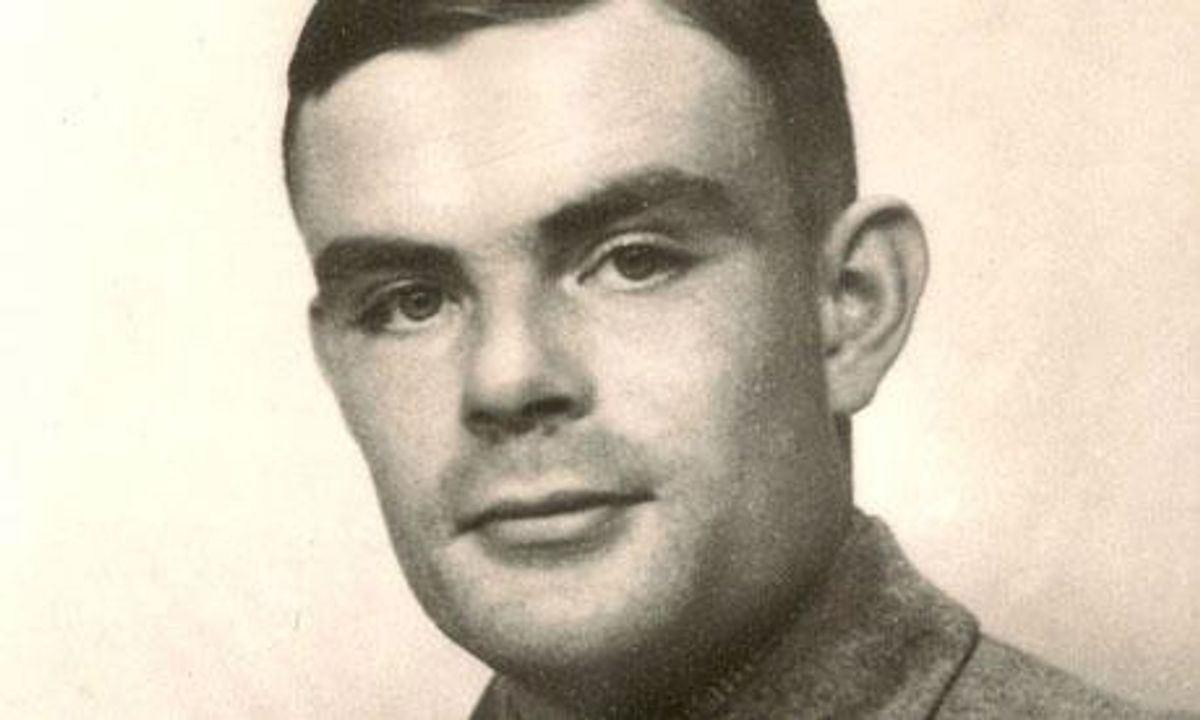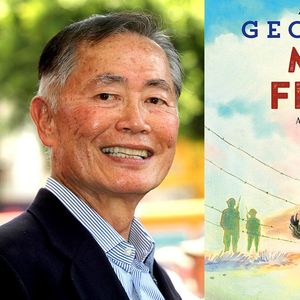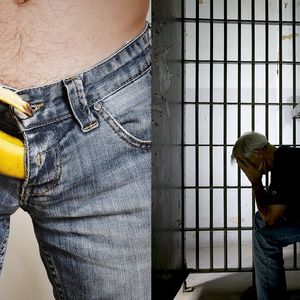He was the hero codebreaker that helped the Allies win World War II. Then he was later convicted of "indecency" for a budding romance with another man. He was chemically castrated in 1952 for that "crime." Two years later, in 1954, 41-year-old Turing killed himself. There is a monument and statue to Turing in Manchester, England, near one of the universities where he taught before his death. Now, after years of campaigns and political struggles to grant him a pardon, The Guardian reports that Turing has been posthumously pardoned under the Royal Prerogative of Mercy by the Queen, following a request from the justice secretary, Chris Grayling who, when announcing the pardon, said:
"Dr. Alan Turing was an exceptional man with a brilliant mind. His brilliance was put into practice at Bletchley Park during the second world war, where he was pivotal to breaking the Enigma code, helping to end the war and save thousands of lives.
"His later life was overshadowed by his conviction for homosexual activity, a sentence we would now consider unjust and discriminatory and which has now been repealed.
"Dr. Turing deserves to be remembered and recognised for his fantastic contribution to the war effort and his legacy to science. A pardon from the Queen is a fitting tribute to an exceptional man."
David Cameron described Turing as a "remarkable man". The prime minister added: "His actions saved countless lives. He also left a remarkable national legacy through his substantial scientific achievements, often being referred to as the father of modern computing."
Reactions have been mixed to the news of the pardon, including from Dr. Andrew Hodges, the author of the acclaimed biography Alan Turing: The Enigma, who told The Guardian:
"Alan Turing suffered appalling treatment 60 years ago and there has been a very well intended and deeply felt campaign to remedy it in some way. Unfortunately, I cannot feel that such a 'pardon' embodies any good legal principle. If anything, it suggests that a sufficiently valuable individual should be above the law which applies to everyone else.
"It's far more important that in the 30 years since I brought the story to public attention, LGBT rights movements have succeeded with a complete change in the law - for all. So, for me, this symbolic action adds nothing.
"A more substantial action would be the release of files on Turing's secret work for GCHQ in the cold war. Loss of security clearance, state distrust and surveillance may have been crucial factors in the two years leading up to his death in 1954."
Author David Leavitt, who wrote
The Man Who Knew Too Much: Alan Turing and the Invention of the Computer, said it was "great news". The conviction had had "a profound and devastating" effect on Turing, Leavitt said, as the mathematician felt he was being "followed and hounded" by the police "because he was considered a security risk".
"There was this paranoid idea in 1950s England of the homosexual traitor, that he would be seduced by a Russian agent and go over to the other side," Leavitt said. "It was such a misjudgment of Alan Turing because he was so honest, and was so patriotic."
Others hope that the convictions could be overturned for the more than 50,000 other men who were also convicted and tried for the victimless crime of "indecency" and their lives ruined for being considered criminals simply for being gay.



















































































